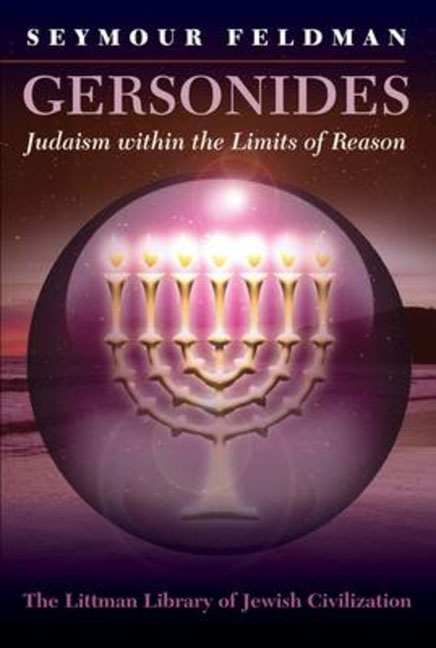Book contents
- Frontmatter
- Dedication
- Acknowledgements
- Contents
- Note on Transliteration
- Note on Sources
- 1 Introduction: Life and Works
- 2 The Story of Creation
- 3 God and his Attributes
- 4 Divine Omniscience
- 5 Divine Providence
- 6 Divine Omnipotence
- 7 Prophecy
- 8 Humanity and its Destiny
- 9 The Torah
- 10 Conclusion
- Bibliography
- Index
6 - Divine Omnipotence
- Frontmatter
- Dedication
- Acknowledgements
- Contents
- Note on Transliteration
- Note on Sources
- 1 Introduction: Life and Works
- 2 The Story of Creation
- 3 God and his Attributes
- 4 Divine Omniscience
- 5 Divine Providence
- 6 Divine Omnipotence
- 7 Prophecy
- 8 Humanity and its Destiny
- 9 The Torah
- 10 Conclusion
- Bibliography
- Index
Summary
‘Is Anything Impossible for the Lord?’
THE VERY FIRST SENTENCE of the Bible seems to give a definitive answer to this question: God created the entire universe. What could count as greater proof of his omnipotence? Indeed, the Bible records many divine acts that explicitly testify to his overwhelming power, especially to alter the natural behaviour of things. In short, every miracle is proof of divine power, as well as of divine providence. Indeed, the very occurrence of miracles could have been used by Gersonides as evidence of individual providence. Besides the specific descriptions of particular miraculous events, the Bible enunciates two statements that formulate the general principle of divine omnipotence. In Genesis 18: 14, in the context of Sarah's doubt that she will ever give birth to a child, God rhetorically asks Abraham, ‘Is anything impossible for the Lord?’ Sarah's menopausal state is no impediment to God's ability to cause her to give birth. In Job 42: 2, Job finally realizes his impertinence and confesses his ignorance in the face of God's power: ‘I [now] know that you can do everything, and that nothing is beyond your purpose.’ Both Christianity and Islam would agree. It is not surprising, then, that the late medieval Jewish theologian Hasdai Crescas makes belief in divine omnipotence one of the six dogmas of any revealed religion.
But once Judaism made contact with Greek philosophy the belief in divine omnipotence, and in particular in miracles, became problematic. Whether because of their conviction that nature was a system of fixed laws or because of their belief in an indifferent deity, the Greek philosophers did not admit miracles into their belief systems. Indeed, in some of the early recorded encounters of pagan philosophers with Judaism or Christianity, the belief in miracles is singled out for ridicule. Philo of Alexandria seems to have been aware of this philosophical challenge, for he is not reluctant to discuss and defend divine omnipotence and miracles. In his treatise On the Creation of the World, he argues against those thinkers who attribute the terrestrial seasons and changes to the actions of the heavenly bodies by reminding them that earthly things were created and generated before the heavenly bodies were created. God did not need them to assist him in getting things started on earth, ‘for all things are possible to God’.
Information
- Type
- Chapter
- Information
- GersonidesJudaism within the Limits of Reason, pp. 131 - 144Publisher: Liverpool University PressPrint publication year: 2015
